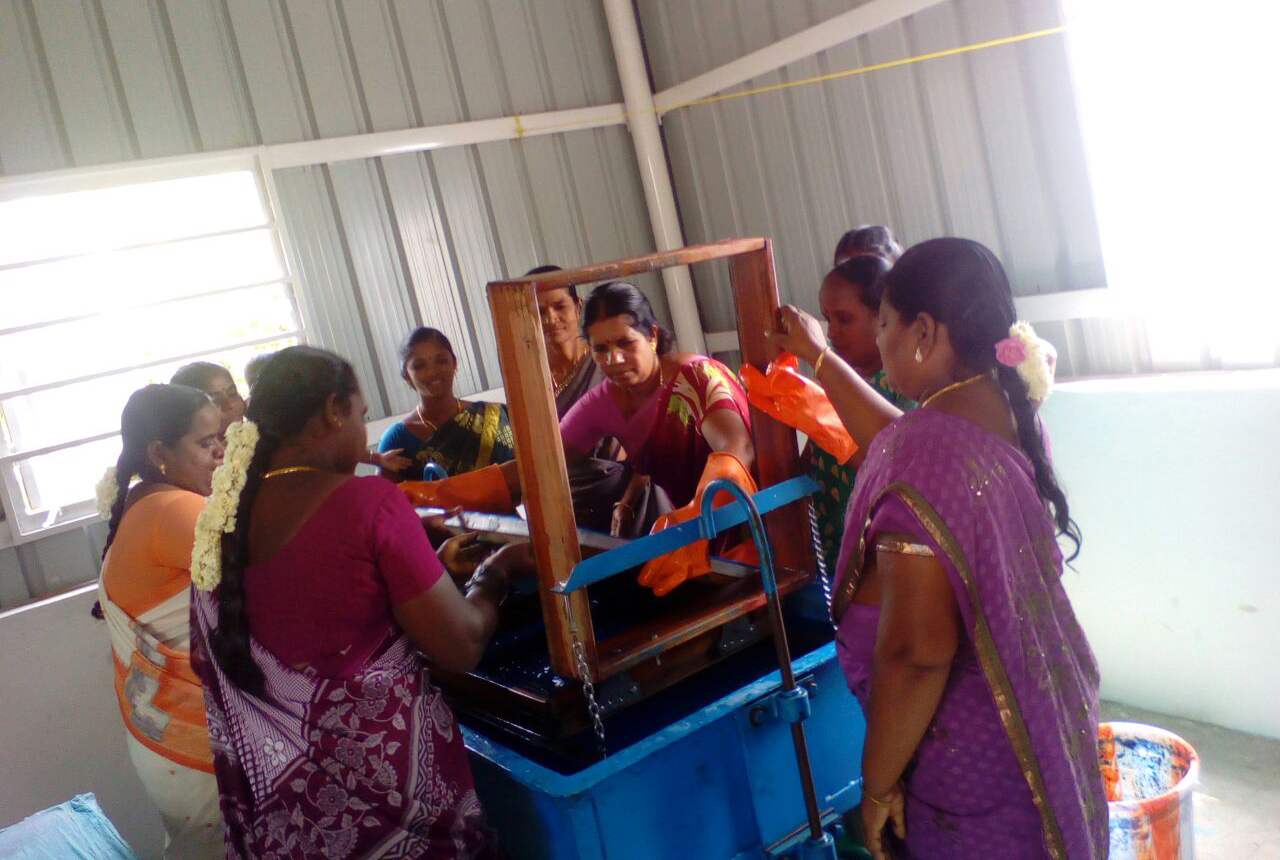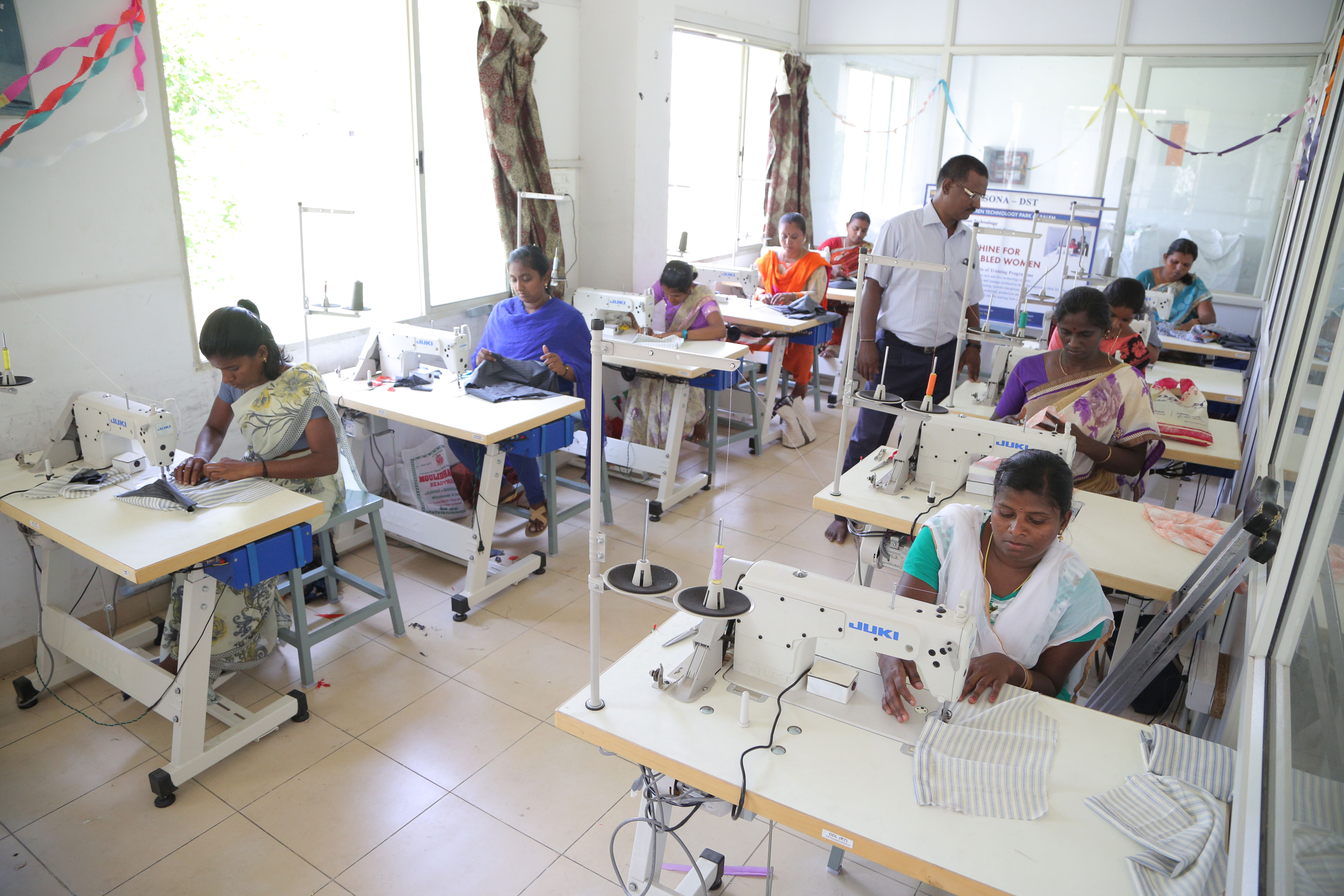

Introduction of solar-powered food processing technique and its training has given innovative ideas to rural women for additional income, while helping reign in losses
.jpg)
.jpg)
.jpg)
.jpg)
.jpg)
When it was found that in one of the villages in Salem – Kandarkulamanickam – as much as 20 percent of the 90 tons of fruit and vegetable produce gets wasted every day, the experts at Sona College of Technology decided to do something about it. Things were no different in other villages, resulting in the toil and investment of farmers from rural Salem also going to waste. This was causing a domino effect of a feeling of helplessness among these families – men and women alike.
The Department of Electrical & Electronics Engineering (EEE) came up with a solution of a solar-powered food dryer, that could dry up the fresh unsold produce while retaining the nutritional value. This dried produce could be sold in their new form, many of them for use as condiments or for medicinal purposes. “There are a few innovative approaches used here. For one, Kudappa stone floors are used for re-radiating the stored heat, especially on less solar radiation days or cloudy conditions. The dryer chamber also uses a unique air flow pattern, that helps dry the items efficiently and uniformly,” shared Padma Srinivasan, Professor and Head Department of EEE, who worked on the development of the solar dryer along with M Panneer Selvam, Assistant Professor from the same department.
.jpg)
The team trained 83 rural women during a five-day extensive training program, out of which 15 have taken to the entrepreneurial path. The college also assisted those who sought loans to set up small self-help groups. Using the unit, the women could dry 200 kgs of tomatoes in two days, and the same amount of vegetables like ginger and onion in three days. The solar drying process retains the nutritional value without using any preservative or chemical to preserve food produce, while also increasing the shelf life.
Chandra*, one of the women, who were trained to use the facility shared her joy at the newfound skill: “We used to dry vegetables or fruits on our rooftops on a small scale earlier, out of which a good portion would also get spoilt. But with this intervention, the final product is of high quality and the best part is there is no dust contamination and it does not use any chemical.”
The solar-powered vegetable and fruit dryer has not only brought hope to destitute farming communities in rural Salem, but has also shown them the path to improve their livelihood. For example, 10 kgs of tomatoes when converted to one kg powder or flakes, may be sold for Rs 450, instead of Rs 50 – helping them conserve their excess produce and in the process also earn profit. The team has tested out the idea with other women and found that the applications of such a unit are innumerable – right from making mango and gooseberry (amla or Nellikkāy) candies to making sun-dried tomatoes, dry ginger, garlic and onion powder, to moringa powder and ready-to-make soups.
The sun-dried products have found applications in ayurvedic and therapeutic concoctions also – The Sona Group’s SonaAYUSH entity regularly uses the unit to make their patented Sona Svsita inhalant powder that improves breathing, sinusitis and relieves headaches. “Although there are also challenges such as the requirement of FSSAI regulations for usage of certain dried products and their powders, the scope of such a unit is huge and it can be easily extended for large-scale commercial usage as well,” added Padma.
*The project, initiated with a grant under the Technology Development Programme of the Department of Science & Technology, Government of India in 2017, was recognised as one of the successful projects in 2022. It operated under the Women Technology Park initiative of Sona College of Technology and continues through the Valliappa Foundation.
*Name changed.
.jpg)
Turning Steel Waste to Paver Blocks Gives Rural Women Entrepreneurial Edge

New Silver-Plating Tech Enables Salem Artisans to Expand Their Horizons

Differently-Abled Women Earn Respect and Living by Using Custom Sewing Machine
.jpg)
When Waste Paper Created Wealth and Inspired Entrepreneurship in Women